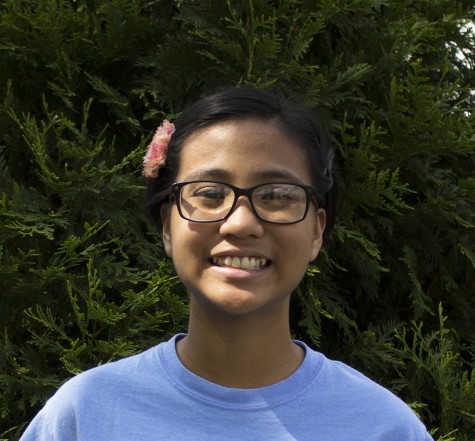American Dream or American Nightmare? Concerns of the Non-US Citizen High Schooler
January 25, 2016
Throughout junior and senior years, MSMS students are encouraged to prepare and make plans for their future, which may be a terrifying concept. MSMS offers information on summer programs, internships and scholarships. Counselors have been sending out helpful information to juniors, seniors and parents alike, and the amount of information and pressure to make decisions can be overwhelming. However, the search for a scholarship or summer internship may cause anxiety for students who may be unable to receive one because of the requirement: “Student must be a United States citizen or permanent resident.”
U.S. citizenship is granted to people who are either born in the United States, naturalized, or whose parents are naturalized citizens. Permanent residents are non U.S. citizens who have applied for and been accepted to receive a Green Card. Children of those who receive Green Cards also will receive one, and having a Green Card gives a non U.S. citizen almost all the same rights as a citizen (except that permanent residents cannot vote).
For students, these benefits include eligibility for scholarships, applying to colleges with the normal application rather than the international application, and cheaper tuition than international students. For example, non-U.S. citizen students may score high enough on the PSAT; but, if they are not permanent residents and their families have not applied for permanent residency, they cannot be recognized for the scholarship. They also may not be considered for the FAFSA and other government financial aid as such assistance may be reserved for citizens and permanent residents.
Some families who have applied for a Green Card may take a long time to receive one, depending on which their native country. There are a limited amount of immigrant visas available, and countries like India and China have a longer line as there are more people from those countries applying for a Green Card. MSMS Senior Vasu Srevatsan’s family members are non-permanent residents from India. According to her mother, Ranju Srevatsan, they applied for a Green Card “forever ago.” Srevatsan expressed exasperation at their current status. Without a Green Card, it is difficult for them to find jobs, especially for universities who do not accept non-permanent residents as faculty. Sri Srevatsan, Vasu Srevatsan’s father, has not been able to change his job either until he receives a Green Card. Ranju Srevatsan said, “The worst part is, that when it comes to paying taxes, we are treated like citizens.” Vasu Srevatsan does not have a social security number; however, she was issued a tax ID number.
Despite this gloomy outlook, there are still opportunities for these students. Though non-permanent residents are not eligible for the FAFSA, they can fill out the CSS Profile which, according to Srevatsan, is better because its questions allow applicants to better explain their situation. When it comes to applying to colleges, different universities have different policies. Two non-permanent resident students seniors from MSMS have already been accepted to Mississippi State University. Srevatsan was recently recognized as a Questbridge Semifinalist, and many Questbridge colleges do consider non-permanent residents. However, she was not accepted as a Finalist.

Flowchart provided by studentaid.ed.gov giving information on what non-permanent residents can do to receive financial aid.
MSMS counselor Heath Stevens is willing to work with non-permanent resident students throughout the college process. Dr. Stevens said the first thing a student should do is to find out the international student policies at the college or university they plan to attend. Usually, this information can be found at the office of International Student Affairs, as it is that office’s job to deal with students’ visa status. Second, a student should work with his or her family and begin the Green Card process as soon as possible. The MSMS counseling office will do as much as they can to communicate the situation to the families as well.
Though non-permanent residents may not be able to enjoy the rights as permanents residents or U.S. citizens, Vasu Srevatsan and her family still make do with what they have. Vasu plans to apply to as many colleges and scholarships as she can, and thankfully, both her parents are employed. Yet, the Srevatsan family came to the U.S. for, according to Ranju Srevatsan, “a better education, a higher standard of living and clean air.” They are one of many families who work and contribute to the communities they are in, having to pay taxes while not having the rights of a full citizen. As R. Srevatsan said “Everyone wants to come to America…everyone is dying for the American dream.”








